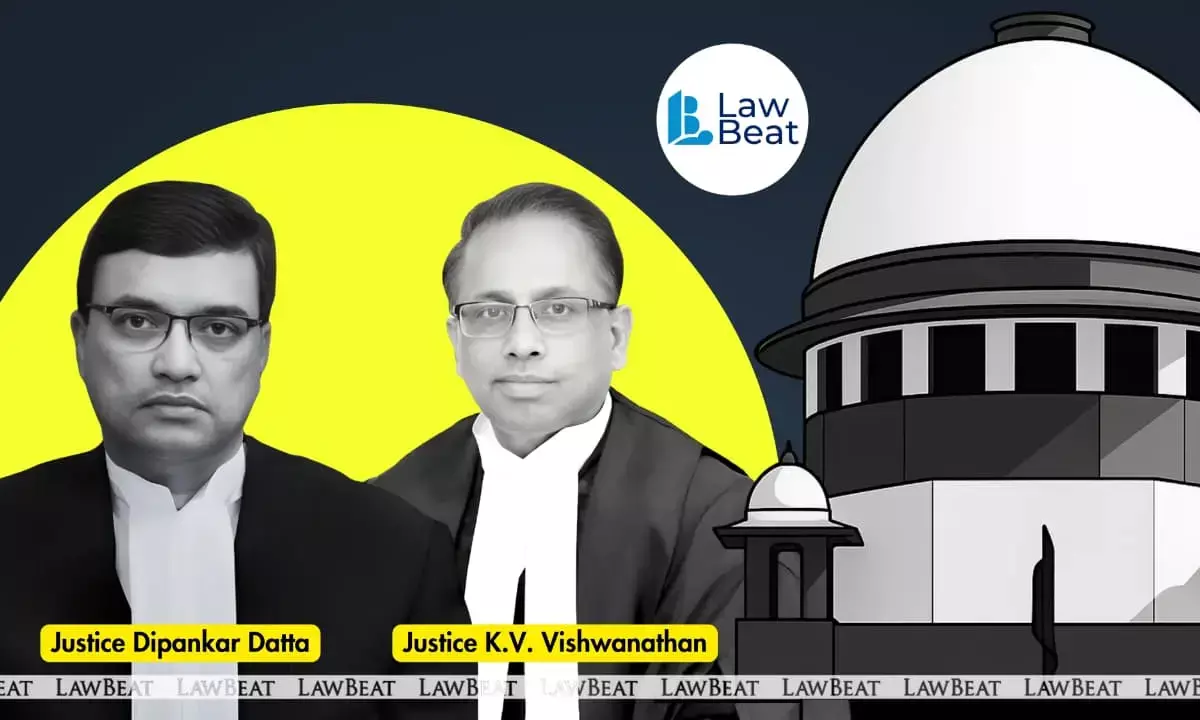‘Courts Must Not Catch Litigants by Surprise’: SC Warns Against Orders Beyond Pleadings

The Supreme Court of India rules on the importance of courts not exceeding the scope of a petition
The Supreme Court, on October 6, 2025, in a dispute over a unilateral hike in annual charges for a marriage hall, held that while a court may grant or deny relief based on the facts and circumstances of the case, traveling beyond the scope of the petition to make strong observations and directions, thereby taking parties by surprise, will create a chilling effect on other prospective litigants.
The bench of Justices Dipankar Datta and K V Vishwanathan emphasized that this could seriously impact access to justice and consequently the very rule of law; hence, in such matters, courts must exercise great caution and circumspection.
Court pointed out that litigants approach the courts for vindicating their rights when they perceive that there is an infringement. "If the court went beyond the pleadings, they will be left to wonder whether by going to court in matters where they perceive injustice has resulted, they will be rendered worse off than what they were, before initiating the proceedings," the bench opined.
Court was dealing with an appeal filed by P Radhakrishnan and Chinmaya Mission Educational and Cultural Trust against the Kerala High Court's order of August 9, 2023. The appellants contended that they had been completely taken by surprise by the high court proceeding directing the fixation of the license fee in respect of the land in question. Furthermore, the high court directed the first respondent Board to conduct an inquiry through the Chief Vigilance Officer with regard to the transaction between the Cochin Devasam Board and the appellants and take necessary action based on the report.
"We are of the opinion that the High Court was not justified in passing the directions... The directions were far beyond the scope of the writ petition. The appellants could not have been rendered worse off in their own writ petition. What is more, the directions have been made without putting the appellants on notice,'' the bench said.
Court noted that a party invokes the jurisdiction of courts being aggrieved by a certain course of action taken against him/it by the respondent.
In this specific case, court observed, the appellants were aggrieved by the unilateral hike of the annual charges for a marriage hall to Rs 1,50,000 per annum from Rs.227.25. The high court was justified in examining the correctness or otherwise of the said decision. The high court, in this matter, found that the respondents were justified in enhancing the annual license fee to Rs 1,50,000.
Having done so, it should have disposed of the writ petition by simply dismissing it, the Supreme Court opined.
"It is well settled that if in an exceptional case the court feels the need to travel beyond the scope of the writ petition and make observations, the least a party is entitled to, is an opportunity to explain and defend themselves,'' the bench said.
The bench cited V.K. Majotra vs. Union of India and Others, where the apex court had disapproved of the practice of catching parties by surprise by the writ courts traveling beyond the scope of the issues in question.
Court noted that, no doubt, what the high court had done in the present matter was to direct the fixing of the license fee, keeping in mind, the judgment of the Court in T. Krishnakumar v. Cochin Devaswom Board (2022), but the appellant had no opportunity to explain whether T. Krishnakumar had application to the transaction in question or not. Further, to direct the Chief Vigilance Officer to hold an inquiry in the “matter relating to leasing out the land to the appellant” was not warranted on the facts and circumstances of the case, court said.
"Directions of this nature for a fishing and roving enquiry can seriously impinge upon reputation and character of the parties. Even in a given case if the High Court was constrained to pass such directions it ought to have put the appellants on notice,'' the bench stated.
Court held the observations by the high court were absolutely unjustified, apart from the fact that they were made in violation of principles of natural justice.
The bench partly allowed the appeal by expunging and setting aside the observations. Court clarified that if the respondent-Board had legitimate rights to enhance the licence fee, they might do so independently and in accordance with law.
Court further directed the respondents to pay back the balance amount of Rs 10 lakh deposited by the appellants within three months.
Case Title: P Radhakrishnan & Anr Vs Cochin Devaswom Board & Ors
Judgment Date: October 6, 2025
Bench: Justices Dipankar Datta and K V Vishwanathan
